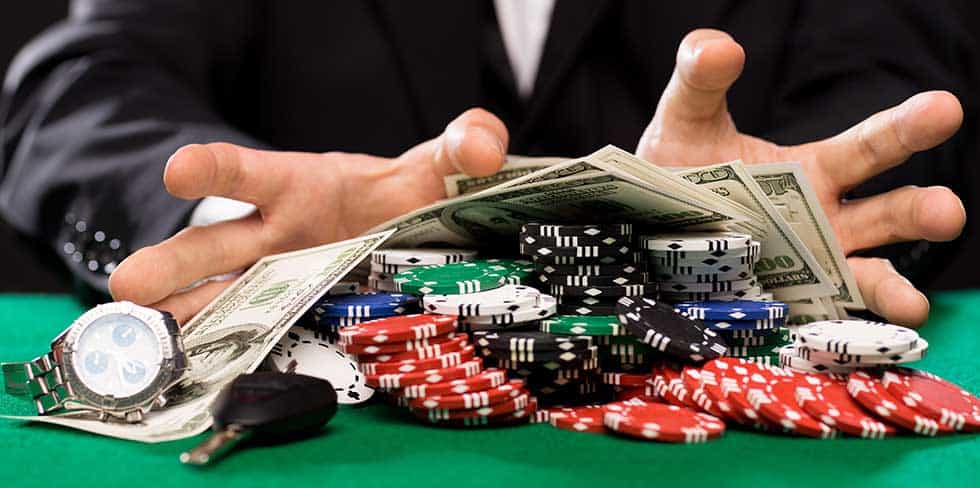Possibility of cost reimbursement through health insurance
Gambling addiction is a serious psychological issue that affects not only the individual, but also their family, friends, and wider social circle. Although it may initially appear to be a harmless pastime or form of entertainment, gambling can quickly develop into a pathological addiction, leading to financial losses, strained family relationships, emotional difficulties, and severe psychological problems.
People struggling with gambling addiction often lose control over their actions, neglect daily responsibilities, and experience emotional instability. Depression, anxiety, debt, and social isolation are just some of the challenges they face. In more severe cases, gambling addiction can lead to criminal behaviour, divorce, and even suicidal thoughts.
However, there is a way out – treatment for gambling addiction is both possible and accessible. Timely intervention and appropriate professional support are key factors in achieving full recovery. With a combination of psychotherapy, medical support, and lifestyle changes, it is possible to overcome this condition for good and regain control of your life.
If you or someone close to you is showing signs of pathological gambling, don’t wait for the problem to escalate – early treatment greatly increases the chances of long-term recovery. Find out how we can help and take the first step towards a new, stable life.
Gambling addiction is a serious psychological disorder classified as a non-chemical, or behavioural, addiction. Although it does not involve the use of substances such as drugs or alcohol, gambling addiction can have equally devastating effects on a person’s life.
People who develop a pathological need to gamble lose the ability to make rational decisions and become obsessed with games of chance—whether it’s casinos, sports betting, online games, or slot machines. Although they are often aware that they’ve lost control, a powerful internal urge drives them to continue, leading to even deeper problems such as financial losses, family conflict, depression, and social isolation.
The World Health Organization (WHO) and the American Psychiatric Association (APA) recognise pathological gambling as a mental disorder that requires professional therapy and structured treatment.

Gambling stimulates the brain’s dopamine system, in much the same way as drug use. Each time a person wins—or even anticipates a win—the brain releases a surge of dopamine, the so-called “pleasure hormone”, creating a temporary feeling of euphoria and excitement.
The problem arises when the brain develops a tolerance to this stimulation. The individual no longer experiences the same level of pleasure as before, leading them to gamble more frequently, wager larger sums, and take greater risks in an attempt to recapture that initial thrill.
Although many believe they can “control” their gambling, the reality is that it is an addiction that gradually takes complete control over their thoughts and actions. This is why professional help is the only effective way to break this destructive cycle.
Gambling addiction is not the result of weak willpower or poor decisions; it develops under the influence of various psychological, biological, and social factors. Many gamblers are unaware of how they became addicted, as the condition develops gradually and initially appears to be a harmless pastime. However, as the urge to gamble intensifies, the consequences become increasingly severe.
Understanding the causes of gambling addiction is crucial for effective treatment and prevention, as it allows for the identification of risk factors and earlier intervention.
Gambling is a powerful stimulant for the brain, as it triggers intense emotional reactions related to both wins and losses. The major psychological and biological factors contributing to addiction include:
Gambling is not just an individual issue; it is heavily influenced by the environment and social norms. Some of the key factors that increase the risk of addiction include:
One of the main reasons people continue to gamble, even after significant losses, is the high level of adrenaline and excitement that the activity generates.
This psychological mechanism creates a dangerous trap, as gamblers believe they are “on the verge of a win,” while in reality, they are sinking deeper into financial and psychological problem
Gambling addiction develops gradually and passes through several clearly defined stages. Initially, gambling may appear to be a harmless pastime. However, as a person invests more time and money, they lose control over their behaviour, which leads to serious consequences.
Treating gambling addiction requires a comprehensive, individually tailored approach. As it is a psychological addiction, the recovery process involves changing thought patterns, learning to control impulses, and re-establishing healthy lifestyle habits. Various treatment methods are available to help individuals break free from destructive behavioural patterns and regain control over their lives.
An effective treatment programme combines multiple methods to ensure long-term recovery. The key to success lies in continuous therapy, changing thought patterns, and adopting healthy habits that enable a fulfilling and stable life without gambling.
Gambling addiction treatment is a personalised process that depends on the severity of the addiction, the psychological state of the patient, and the methods of therapy applied. Although each case is unique, there are approximate timeframes that indicate the average duration of treatment and its effectiveness.
Statistics indicate that with professionally managed treatment programmes, around 85% of patients successfully quit gambling and maintain long-term abstinence. Key factors contributing to success include:
After completing the core treatment, patients go through a long-term rehabilitation programme, which helps prevent relapse and strengthens mental resilience.
Gambling addiction treatment is not just about stopping gambling – the goal is a complete lifestyle change, stabilising the psychological state, and fostering a healthy attitude towards money, emotions, and decision-making. Long-term support and appropriate therapy enable patients to regain control over their lives and prevent a return to addiction.

The cost of gambling addiction treatment varies depending on the duration of the therapy, treatment methods, and the individual needs of the patient. Each case is unique, which is why the treatment approach is tailored to ensure maximum effectiveness and long-term recovery.
Given that each treatment programme is personalised to the individual needs of the patient, for an accurate cost estimate and pricing details, please contact our team. We will provide you with all the necessary information and assist in finding the best solution for recovery.
Choosing the right place for gambling addiction treatment is a crucial step on the road to recovery. Our centre offers professional, comprehensive, and discreet support to individuals who wish to break free from destructive behaviour patterns and build a stable, high-quality life.
Recovery doesn’t end with the completion of initial treatment. Our centre provides continuous post-therapy support through counselling, check-ups, and psychological monitoring, helping patients stay on the path to stability. We are focused on long-term results and empowering individuals to successfully manage everyday challenges.
The trust placed in us by our patients is built on our commitment, knowledge, and genuine desire to help them rediscover themselves — free from gambling, free from guilt, and free from fear of the future.